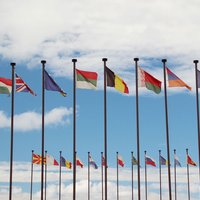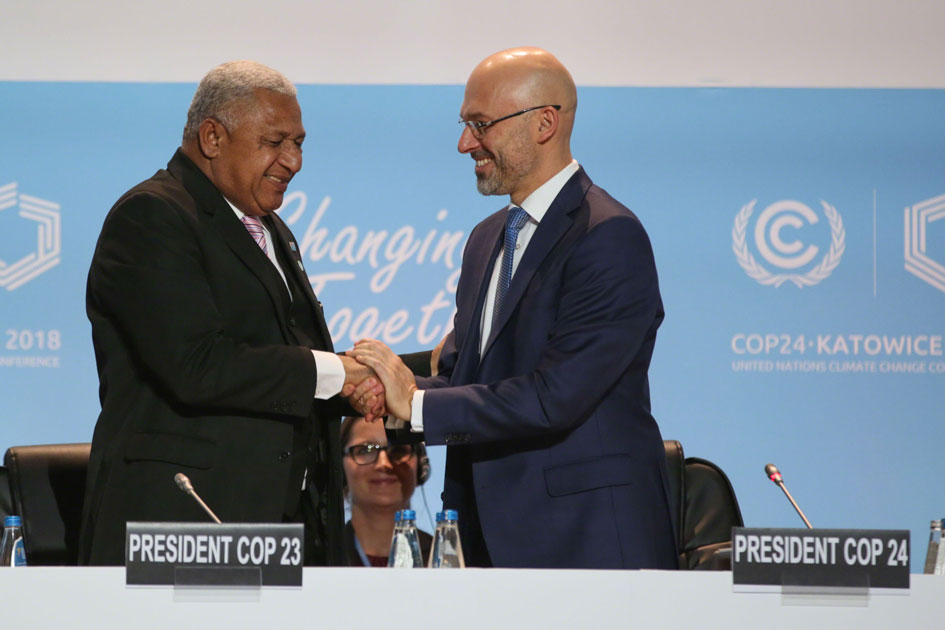Fine Print of Paris Agreement Adopted, Implementation Pending
COP24 outcomes and analysis report

COP24 outcomes and analysis report


On 15 December 2018, this year's UN climate conference concluded with the adoption of the "Katowice Climate Package". This set of decisions operationalises the 2015 Paris Agreement by setting out detailed guidelines on how to implement its various elements. Researchers from the Wuppertal Institute attended the conference and have now summarised the key outcomes of the negotiations. Their initial findings show that while COP24 in Katowice prepared the technical framework for climate action and thus marks a significant step forward, the mitigation ambitions of most major emitting countries still fall far short of what would be necessary. An in-depth analysis report will be published in January.
From 2 to 15 December, the 24th Conference of the Parties to the United Nations Framework Convention on Climate Change (COP24) was held in Katowice, Poland. Among the key issues addressed at the conference were defining implementation guidelines for the Paris Agreement and increasing the level of ambition of climate action.
The Wuppertal Institute's research team on global climate governance closely observed the climate change negotiations during the two-week conference and now presents its initial analysis of the conference and its outcomes. A detailed analysis report will be available in January.
Key outcomes of COP24
The implementation guidelines adopted in Katowice in particular set out how countries are to develop and report on their climate protection pledges (the so-called nationally determined contributions - NDCs). Other key issues at the conference included financial support for developing countries and the procedures for how to conduct the first "Global Stocktake" of the effectiveness of global climate action in 2023.
"The guidelines are more robust than many had dared to expect at the start of the conference", explains Wolfgang Obergassel, project co-ordinator in the Energy, Transport and Climate Policy division. "Given recent rollbacks in key countries, in particular the US and Brazil, this is a remarkable achievement which shows that multilateral agreements are still possible and that the creation of loopholes, which may for example be created by complex market mechanisms, is not accepted by the majority of countries. Nonetheless, this is no more than a step in the right direction. Global greenhouse gas emissions are continuing to rise, with 2018 marking a new record year. And only a handful of countries used the occasion in Katowice to announce that they were going to strengthen their contributions."
"This is far too little to achieve the objectives of the Paris Agreement and for limiting the increase of global mean temperature well below 2°C above pre-industrial levels. The adoption of the implementation guidelines therefore only prepares the framework for the real work to come: actually reducing emissions", adds Manfred Fischedick, Vice-President of the Wuppertal Institute. "With the negotiations on the Paris implementation guidelines having mostly been concluded, it is now possible to focus on the task of raising ambition. The Paris Agreement calls on countries to submit new or updated contributions by 2020. Countries therefore now urgently need to start intensive national discussions and live up to their responsibilities. The special climate summit that will be convened by UN Secretary-General António Guterres in 2019 should be used as a milestone in this process."
In addition, the conference in Katowice left much work for the next COP that will take place at the end of 2019 in Chile. In addition to continuing the discussion about the necessary level of ambition for successfully protecting the world’s climate, also the aspects of adaptation to climate change and the support for especially vulnerable countries need to be put on the agenda more prominently.
In-depth analysis report to be published in January
The Wuppertal Institute will publish its in-depth analysis of COP24 in January. The report will take a close look at the various issues addressed at the conference and at other related topics.
Press release
Wuppertal Institut für Klima, Umwelt, Energie gGmbH
Responsible for content: Professor Uwe Schneidewind, President
Contact: Christin Hasken, Head of Communications and Public Relations
Tel.: +49 202 2492-187
Fax: +49 202 2492-108
E-mail: christin.hasken@wupperinst.org
Further information
Links
Downloads
Printable pictures

Experts of the Wuppertal Institute followed the negotiations during the 24th UN Climate Change Conference. Photo: Wuppertal Institute
